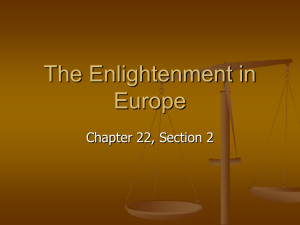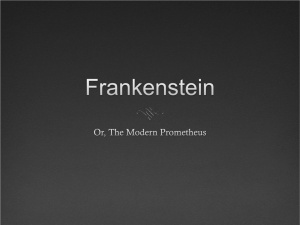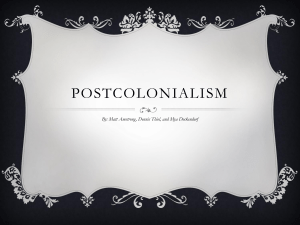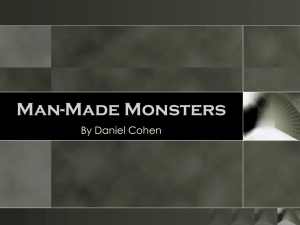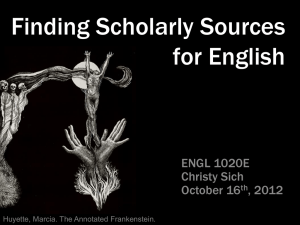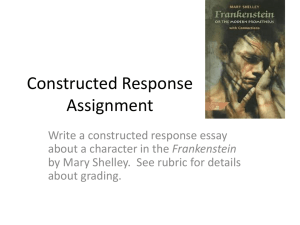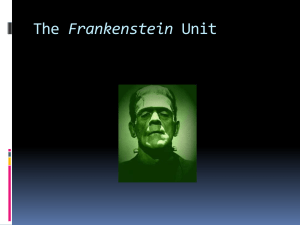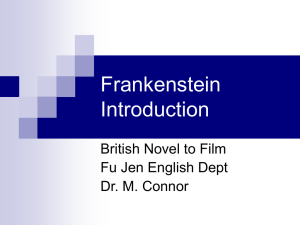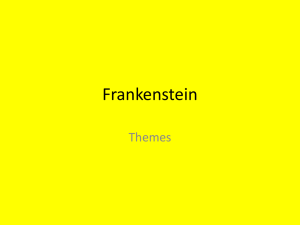Claims and Inquiry
advertisement
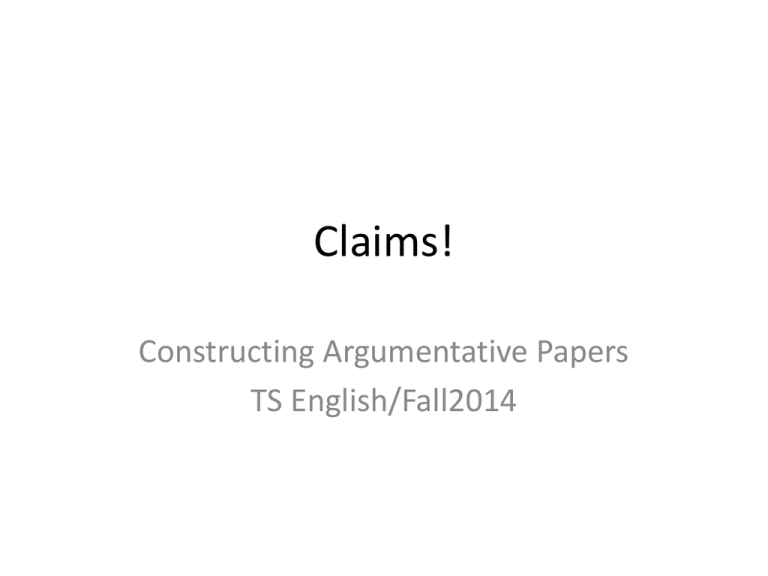
Claims! Constructing Argumentative Papers TS English/Fall2014 Course Goal • Argument: To produce complex and persuasive claims that matter in an academic context – A “complex” claim is NOT about using big words or making your idea as hard to understand as possible. It is about approaching your topic of inquiry from a critical perspective, developing it from a variety of angles, and incorporating within it several types of analytic points. – Most importantly, claims are intended to be “persuasive” which means your primary goal is to persuade your audience to your critical point. Terms: Argument/Claim • An argument includes: – An ANALYTIC engagement with multiple pieces of EVIDENCE that are organized by… – A LINE OF INQUIRY which helps to develop those pieces of analysis in support of… – A central, argumentative CLAIM that seeks to add to the ACADEMIC CONVERSATION on the topic/text/issue at hand. Claim Vs. (5-paragraph) Thesis • LIKE a Thesis Statement, a Claim… – Is located at the beginning of the paper – Helps your reader to understand your goals and to follow along with your ideas as they develop • UNLIKE a Thesis Statement, a Claim… – Is not limited to one sentence – Does not contain a list of every point you will make in the paper, but focuses on explaining your goal, how you will go about achieving it, and, perhaps, why it matters – Is NOT general (so that many types of evidence can be used in its service), but argumentative in its specific and detailed analysis of a topic/issue. – Speaks to the concerns of a particular academic conversation Claim vs. (5-paragraph) Thesis • Thesis: Mary Shelley’s Frankenstein connects education to themes of ambition and pride. We can see this connection in X, Y and Z. – One sentence – Vague position: “connects” is a vague gesture, not a detailed description of the relation of these concepts. Not a strong position. – Shallow analysis: Fails to submit this “connection” to more inquiry. What happens because of this connection? What is the meaning of that? How does the novel develop this connection? – Fails to say anything about why this connection matters for our understanding of larger topics or issues. Complicating your Claims • Thesis: Mary Shelley’s Frankenstein connects education to themes of ambition and pride. Through these themes, Shelley uses Frankenstein’s education to illustrate both the positive and negative inflections of Enlightenment individualism. On one hand, his education at home is characterized in terms of “freedom” and self-determination. But his university education is marked by casual self-interest, isolation, and obsession. By representing Frankenstein’s education and gradual degradation in these terms, Shelley critiques Enlightenment values which present individualism and Reason as unquestionable values. Complicating your Claims • Thesis: Mary Shelley’s Frankenstein connects education to themes of ambition and pride. While education in the Romantic period was certainly associated with both the value of secular Reason and the virtue of Enlightenment individualism, Frankenstein’s education takes a turn towards obsession and isolation once he leaves his ideal family life in Geneva. Shelley’s critique suggests that this education, and its values, were dependent on the mental and emotional balance provided by nineteenth century domesticity. Complicating your Claims • Thesis: Mary Shelley’s Frankenstein connects education to themes of ambition and pride. In particular, Frankenstein’s education represents the dark consequences of a society which overemphasizes rationality and science. Lacking in social connections, and innocent of instructive tales of “supernatural horror,” Frankenstein’s ambition leads him to commit crimes against nature. In contrast, the monster experiences his own exclusion through the sentimental education he receives from Felix and his family. In this way, Frankenstein makes an argument for another type of education which would supplement reason with an emphasis on moral prohibition and the sanctity of social bonds. Claims are always “in process” • Writing is NOT simply the result of thinking and learning that happens elsewhere, it is a valuable part of the learning/thinking process. Encountering difficulties as your develop your idea is a productive aspect of this process • You should always remember that your claim (like your analysis and organization) is a work in process until the paper gets turned in. • You should be open and willing to changing your claim (either drastically or through small alterations) AS YOU WRITE and think through your analysis. A “feedback loop”! Claim "Spectrum" • All claims must be simultaneously “argumentative” and “arguable.” – Argumentative: not obvious, something that someone might be interesting in disagreeing with/in conversation with other academic work – Arguable: can be supported effectively using viable evidence and analysis. Not speculative or populated by inappropriate assumptions. • Truly effective claims will strike a balance between these two poles, achieving both a somewhat “risky” argumentative position that is ALSO persuasive in its supporting evidence and analysis. Evaluating Claims • Arguable, but not Argumentative: – Pointed Summary – Analytic points that amount to common-sense platitudes (“pride goes before a fall”) – “First level” interpretive observations (including claims which “teach” us about character and plot. EX. Frankenstein is a novel that comments upon the status of education in 19th Century Europe. EX. The novel thematizes family and gender to suggest that blood is thicker than water. EX. The novel’s theme of obsession is important because it helps us to understand why Victor is a bad father. Evaluating Claims EX. Frankenstein is a novel that comments upon the status of science in 19th Century Europe. • What do I do if my claim is Arguable, but not Argumentative? – Ask critical questions to make it more specific (“Comments” in what way? What is the “status” of science in the novel relative to its context?) – Return to the evidence and make use of more detailed analysis Evaluating Claims • Argumentative, but not Arguable – Speculative claims which rely on character motivations , hypothetical situations, or authorial intent. – Claims which require forms of research which you don’t have academic support for (historical, political, etc) EX. The monster in Frankenstein is representative of problems with the 19th Century mother-son relationship, since Frankenstein would have never created the monster had his mother been alive. EX. Frankenstein’s monster reflects the Mary Shelley’s limited understanding of biological science and her personal fear of motherhood. Evaluating Claims EX. The monster in Frankenstein is representative of problems with the 19th Century mother-son relationship, since Frankenstein would have never created the monster had his mother been alive. • What do I do if my claim is Argumentative, but not Arguable? – Do research to fill in the gaps (history of 19th C family?) – Avoid basing your claim on these assumptions by asking different questions (What is the status of family in the novel? How do you interpret these patterns in gender?) – Return to the textual evidence and make use of more detailed analysis (where can I use the TEXT to say this?)
